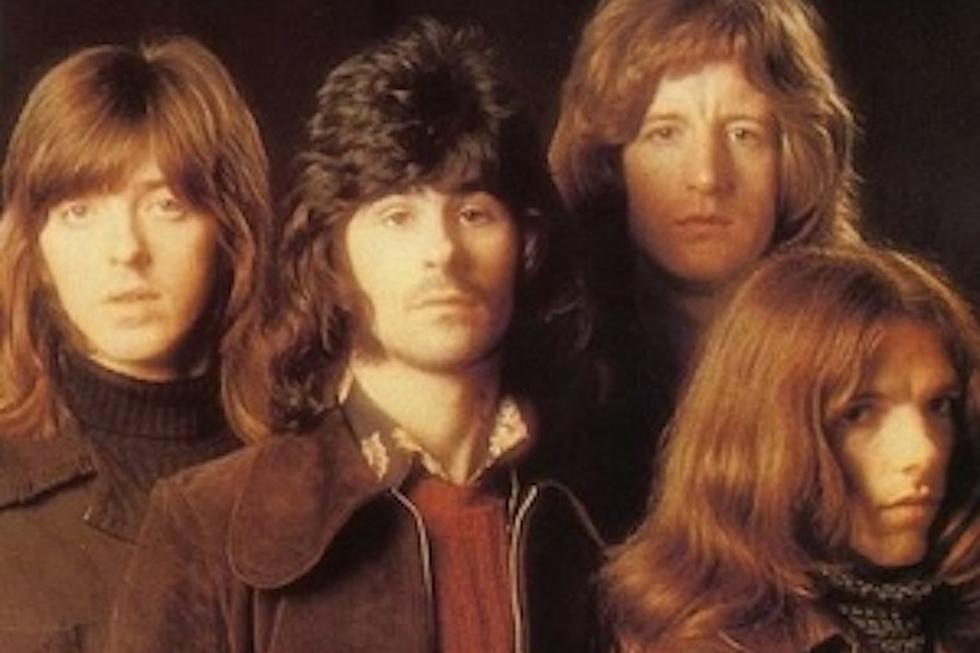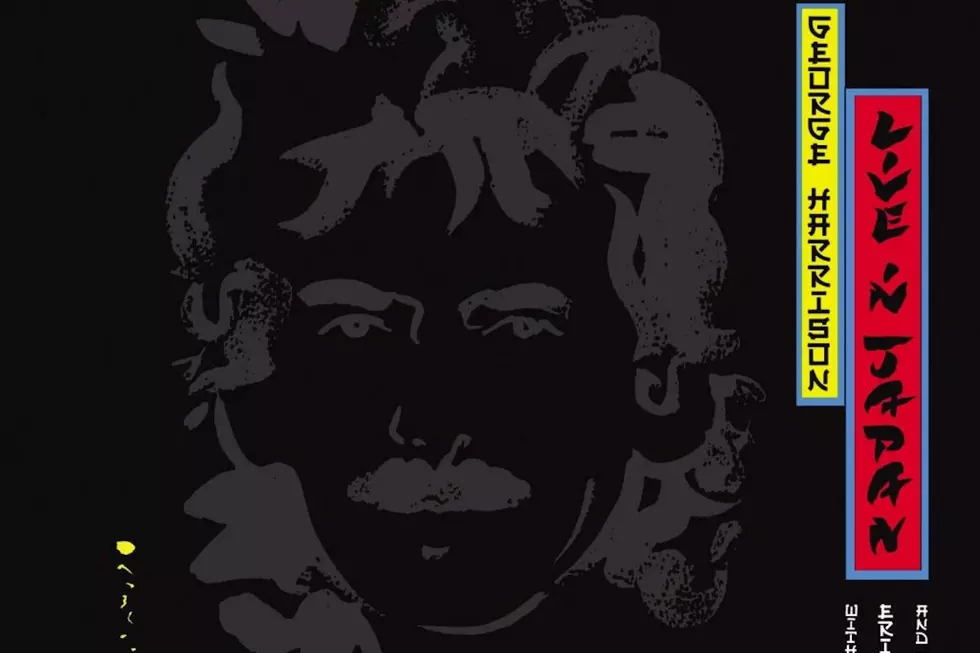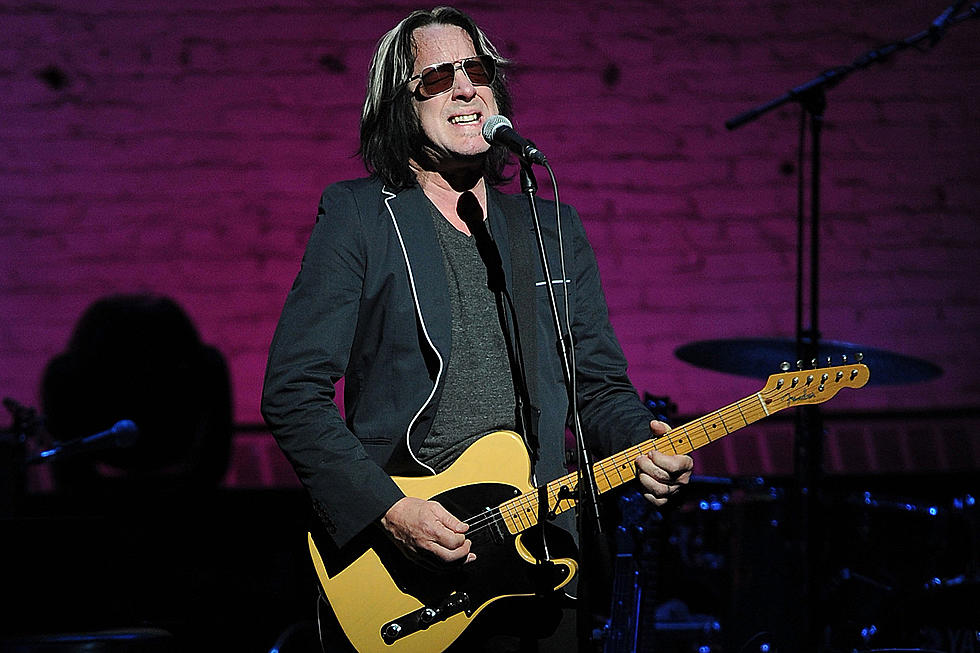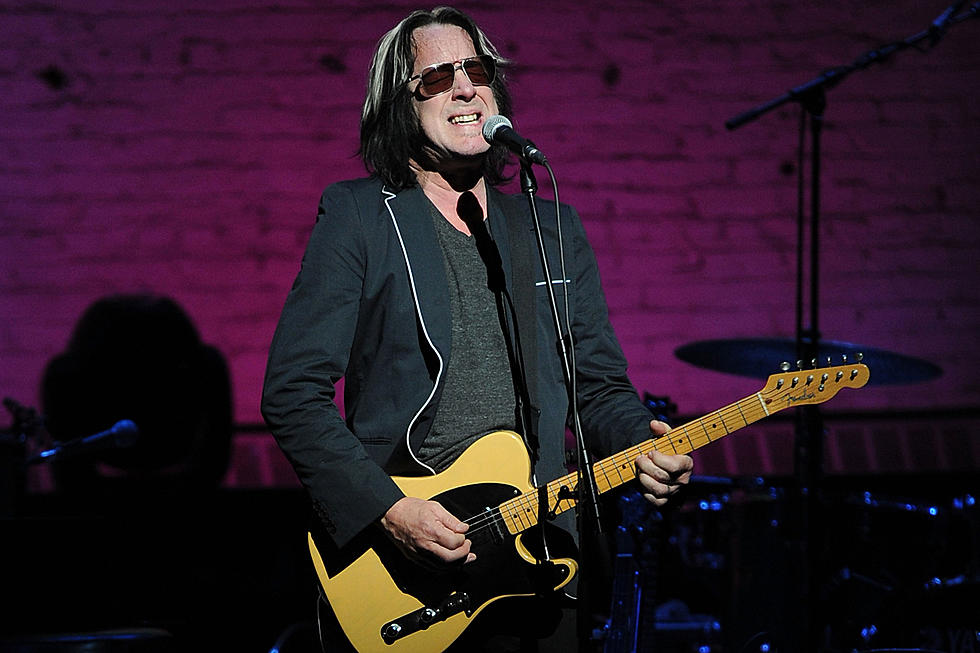
50 Years Ago: How Two Superstars Helped Badfinger Complete ‘Straight Up’
Badfinger battled comparisons to the Beatles from nearly the moment they started their musical career.
Producer Tony Visconti worked with the group (then known to the world as the Iveys) and produced their first single, "Maybe Tomorrow" – and even he was astounded at the parallels.
"I sometimes had to look over the control board down into the studio to make sure John [Lennon] and Paul [McCartney] weren't singing lead vocals," Visconti said for the liner notes to The Best of Badfinger.
For better or for worse, the two bands were inextricably tied together: Badfinger was the first group signed to the Beatles' Apple record label. They made a 1969 hit out of "Come and Get It," a track written and produced by McCartney that at one point had been considered for Abbey Road.
Then all four of the members of Badfinger contributed to George Harrison's landmark All Things Must Pass album, guitarist Pete Ham and bassist Tom Evans sang backing vocals on Ringo Starr's Harrison-produced single "It Don't Come Easy," while Evans and guitarist Joey Molland performed as "Joey and Tommy Badfinger" on Lennon's Imagine.
The similarities weren't intentional, Molland later pointed out. Both he and Evans had been born in Liverpool only a few years after the members of the Beatles, and experienced similar childhoods.
"The Beatles weren't looking for anybody to carry their flame, as it were," Molland told Music Radar in 2010. "If you look at the artists that got signed to Apple, none of them sounded like the Beatles. They were all very different. So if we did sound a little like the Beatles, that had more to do with our upbringing."
Badfinger's fourth studio album Straight Up arrived on Dec. 13, 1971, as an expected continuation of their working relationship with Apple. Sessions began – and were all but completed — with Beatles producer Geoff Emerick at Abbey Road studios in London, but the tapes were rejected after the label insisted Badfinger try for a more polished sound.
Listen to Badfinger's 'Day After Day'
That's when Harrison stepped in as lead producer. Though diligent, he had a tendency to strive for perfection – a habit that sometimes frustrated members of Badfinger. It also yielded some of the best results: "Day After Day," featuring Harrison's meticulous guitar work, became Badfinger's biggest hit after being released as the album's lead single.
"It was his arrangement. George borrowed my Strat and did a bunch of different takes playing slide," Molland said. "He was a terrific guitarist, but he spent a lot of time getting things just the way he wanted them."
Leon Russell and Klaus Voormann also appeared on these sessions, courtesy of Harrison's invitation.
In other instances, Badfinger were left to their own devices, as with Ham's "Baby Blue," which he dedicated to girlfriend Dixie Armstrong. "I wrote 'Baby Blue' after not seeing her for a few months," Ham said in 1972. "I thought she was angry for not calling but by the time it was completed, we had already gotten back together. I kept the song anyway, because it could apply to a lot people."
But then Harrison had to abandon Straight Up due to commitments with his Concert for Bangladesh, throwing the sessions into disarray. He offered a replacement in his friend Todd Rundgren, who was tasked with picking up the pieces.
“I got two batches of tapes: the ones that George had worked on and the ones that Geoff Emerick had worked on, and they sounded like two completely different records," Rundgren told the Hollywood Reporter in 2013. "The intention had been that George was going to do a complete record with them using that au courant sound that was going around at the time, [a la] Phil Spector, that involved five or six acoustic guitars playing all the time, double-tracked drums and all kinds of stuff to make it sound really big.
"But everything that you produce with that style tends to sound the same," Rundgren added. "I was a little more interested in actually moving a little closer to what Geoff Emerick was doing, which was trying to capture what the band actually sounded like.”
Listen to Badfinger's 'Baby Blue'
Molland, who is the only surviving classic-era member of Badfinger, said the mood surrounding Straight Up quickly soured. "Todd was an overbearing egomaniac!" he told Music Radar. "I told him to his face that being in the studio with him was the worst experience I'd ever had. ... He thought he was just so fucking great, you know? And he wasn't great. He was bloody awful."
Though it may have been exciting in studio, the complex Wall of Sound approach also proved a serious challenge on tour.
"To be honest, as much as I liked George and admired him, I was a bit resentful at what was happening to our sound. We were getting too smooth," Molland added. "After Straight Up, it was becoming impossible for us to play our songs on stage. There were too many overdubs — eight acoustic guitars and 16 vocals and everything else. People wanted us to sound like we did on record, and we couldn't do it."
On the other hand, Rundgren was pleased with the results, in particular considering the haphazard circumstances. "I was actually kind of amazed after all of the different sources that we pulled it together," he said in 1997's Power Pop: Conversations With the Power Pop Elite. "The thing that amazed Badfinger was I did the whole thing in two weeks. We recorded the new tracks and mixed the whole thing in two weeks."
Though "Day After Day" reached No. 4, Straight Up was not a huge hit, peaking at No. 31 on the Billboard Top 200. Critics at the time described the album as mostly bland and unexciting, but contemporary reviews have been more favorable. Straight Up stood out among Apple's albums in spite of the production difficulties and disagreements, and is now considered Badfinger's best work.
Molland has come to agree, as well. "I think the albums and the songs stand up," he said. "We were a cool band. We had a brief moment of brilliance, but it's one that I hope lives on."
Top 100 '70s Rock Albums
When Todd Rundgren Quit Working on Kanye West's Album
More From 99.1 The Whale










